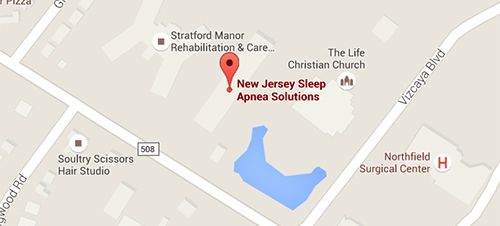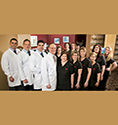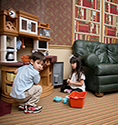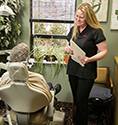How Blue Light Affects Sleep
Submitted by New Jersey Snoring Solutions on Fri 12/29/2017 - 09:00
 Digital screens are an unavoidable part of our lives these days, and parting ways with them each night can be difficult for many people. Whether you wind down in the evening by reading from a tablet, obsessively checking social media, or curling up in bed to an episode of your favorite show, the blue light emitting from electronic screens can negatively impact your sleep. In this blog post, Dr. Ivan Stein of New Jersey Sleep Apnea Solutions discusses why you should keep electronic devices off the nightstand for good.
Digital screens are an unavoidable part of our lives these days, and parting ways with them each night can be difficult for many people. Whether you wind down in the evening by reading from a tablet, obsessively checking social media, or curling up in bed to an episode of your favorite show, the blue light emitting from electronic screens can negatively impact your sleep. In this blog post, Dr. Ivan Stein of New Jersey Sleep Apnea Solutions discusses why you should keep electronic devices off the nightstand for good.
What Does Blue Light Do?
- Blue light hinders the production of melatonin, which your body needs in order to signal sleep. This hormone is only activated once darkness falls, so tricking it with unnatural light is a sure way to delay its production.
- Your body’s internal clock, also known as the Circadian Rhythm, can be sabotaged by blue light. By staying awake and staring at a screen for an extra hour or so before bed, you run the risk of mimicking the effects of jetlag.
- Blue light increases alertness, which will postpone your body’s natural desire for sleep. Healthy adults should get 7-9 hours of restful sleep each night, which is nearly impossible when your body is tricked by blue light.
Impose a Digital Curfew
A great way to prevent the impediment of sleep due to blue light is to impose a digital curfew for you and your family. Powering down your devices an hour or two before bed will allow your body ample time to produce the melatonin that is much needed for a deep and restful sleep. Rather than turning to your tablet for a great story, pick up a book or magazine. If you absolutely must sit in front of a screen, dim the brightness levels so less blue light is meeting your eye.
Importance of Sleep
It is hard to overstate the importance of a good night’s sleep. Our body needs to be able to rely on a good sleep schedule in order to stay healthy and happy. Children and teenagers especially need restful sleep for healthy growth and brain development. Something as simple as a one- or two-hour screen-free buffer before bed can make a world of difference.
If you have questions about how sleep can impact your long-term health, or think you may need help achieving your best rest, do not hesitate to talk to a sleep specialist. To schedule a consultation with Dr. Ivan Stein, call New Jersey Sleep Apnea Solutions at (855) 949-7667.







